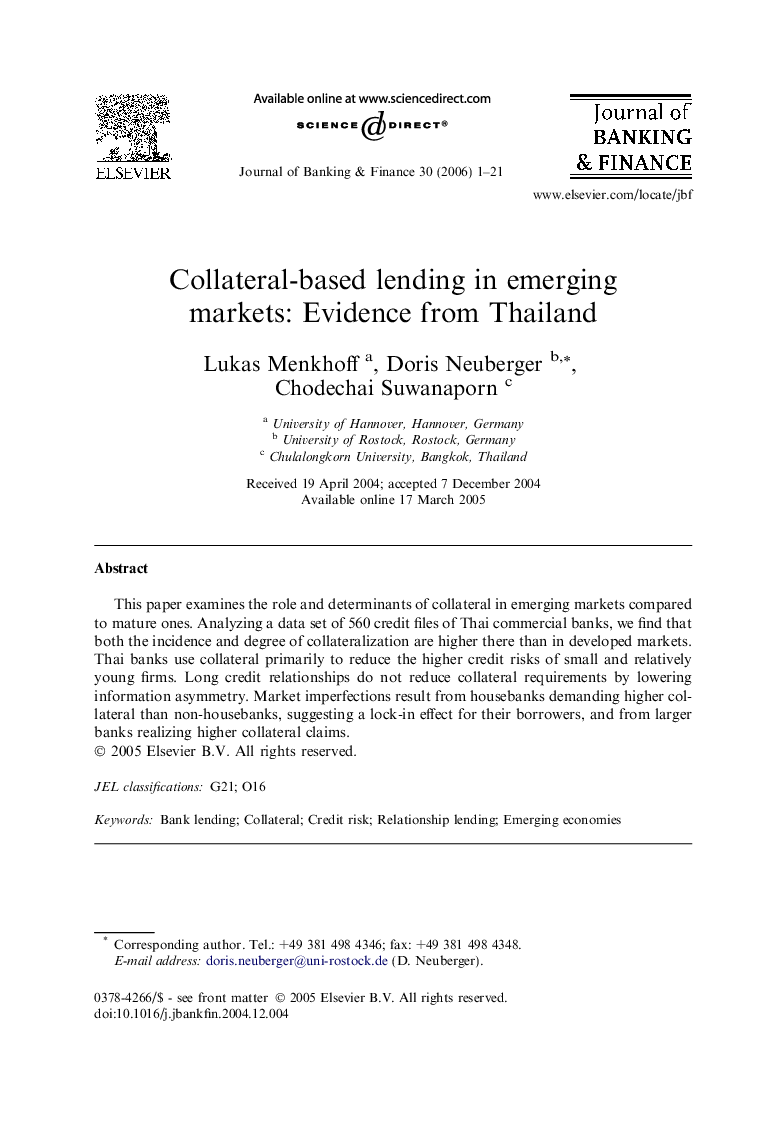| Article ID | Journal | Published Year | Pages | File Type |
|---|---|---|---|---|
| 5091631 | Journal of Banking & Finance | 2006 | 21 Pages |
Abstract
This paper examines the role and determinants of collateral in emerging markets compared to mature ones. Analyzing a data set of 560 credit files of Thai commercial banks, we find that both the incidence and degree of collateralization are higher there than in developed markets. Thai banks use collateral primarily to reduce the higher credit risks of small and relatively young firms. Long credit relationships do not reduce collateral requirements by lowering information asymmetry. Market imperfections result from housebanks demanding higher collateral than non-housebanks, suggesting a lock-in effect for their borrowers, and from larger banks realizing higher collateral claims.
Related Topics
Social Sciences and Humanities
Economics, Econometrics and Finance
Economics and Econometrics
Authors
Lukas Menkhoff, Doris Neuberger, Chodechai Suwanaporn,
